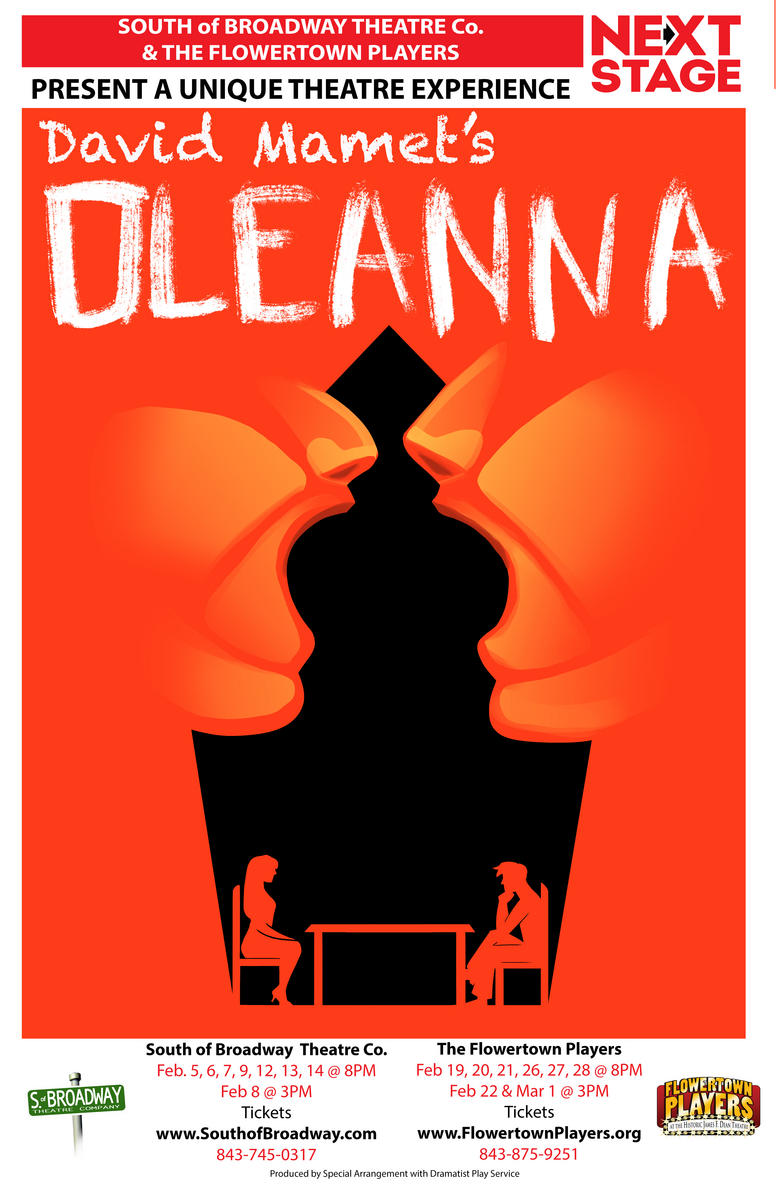
Have you ever had an argument where you know that what you’re saying is correct, but the other person is also convinced that they are correct? And I don’t mean a friendly argument—I mean the type of argument that makes you feel crazy because you KNOW that you are right? When you’re tempted to smack the other person because you are so sure that you are in the right? The type of argument that you can’t win? In David Mamet’s play Oleanna, you have to watch one of those arguments unfold in front of you, but you have to keep your mouth shut, and it is damn near impossible.
In the early 90s, a woman named Anita Hill accused Supreme Court Justice nominee Clarence Thomas of sexual harassment. During the confirmation hearings, Hill and another woman testified against Thomas, accusing him of making pornographic statements about the women who worked for him. Most of his female office staff testified on his behalf, stating that he was a demanding but respectful boss and that they never noticed any tension between Hill and Thomas. Many believed Hill’s testimony to be perjury, and Thomas was elected. He has served on the Supreme Court now for 24 years. The Clarence Thomas/Anita Hill hearings are the inspiration behind David Mamet’s Oleanna, a play in three acts that depicts the power struggle–driven argument between a professor and his female student, who accuses him of sexual harassment, which in turn threatens his chance for tenure. Charleston is in the midst of a Mamet boom with productions of both Glengarry Glen Ross and Oleanna running in February.

NEXT STAGE is a program created by the folks over at Flowertown Players in Summerville and South of Broadway Theatre Company (SOBTC) in Park Circle. The two theaters coproduce two plays a year; At SOBTC, the shows are performed in-the-round and, later, at Flowertown in a more traditional proscenium setting (aka NOT in-the-round). The shows are chosen specifically to work in both spaces and are restaged over the course of three days. This is an especially challenging undertaking for both the actors and director, but for the audience, if they are able to catch both productions, it is an eye-opening experience. I saw Oleanna in-the-round at SOBTC last week, and it was such an effective production that I found myself physically and audibly reacting to the action. As I mentioned before, this is not the kind of situation you want to find yourself in, which makes it even more difficult to witness as an outsider.
So why should you put yourself through this? I have seen both Mamet productions, and though they were expertly acted and directed, neither of them made me feel very good about the world. I think this was Mamet’s intention. I think these plays are meant to help viewers understand different mentalities and to explore the decisions people make from a point of view different than their own. This doesn’t make them any less unpleasant, but you get the point. I also think that in this day and age, it is important for people to expose themselves to differing mentalities to try to reach a new level of understanding. Theatre is an effective medium for this, as it allows you to see real life, raw, right in front of you. In the words of Stella Adler, “Theatre comes from the Greeks. It means ‘the seeing place.’ It is the place people come to see the truth about life and the social situation.”
Oleanna runs at the Flowertown Players in Summerville thru March 1. The production features local actress Julie Hammond as Carol and SOBTC Artistic Director Mark Gorman as John. Both productions directed by Flowertown Players Artistic Director JC Conway.